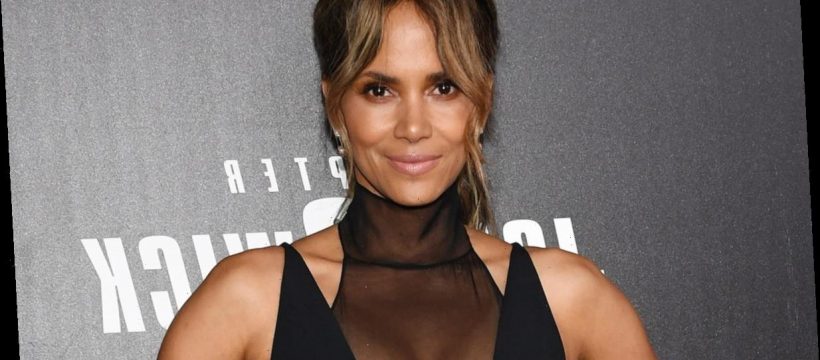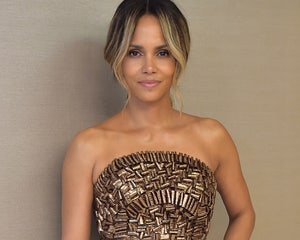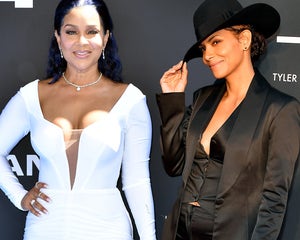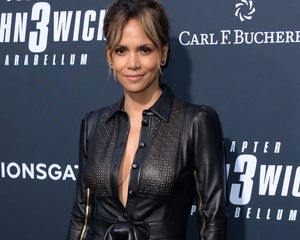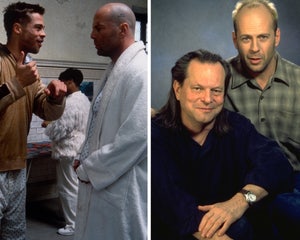After her 2002 win for “Monster’s Ball,” Berry is expected to be in the mix again for the upcoming Academy Awards for her starring and directing work on “Bruised.”
Halle Berry thought she was breaking down doors for women of color with her 2002 Best Leading Actress Oscar win for “Monster’s Ball.” Now, she may be the next one to walk through it.
Back in the mix with Oscar buzz for her directorial debut “Bruised,” which she also starred in, the actress admitting that it’s “heartbreaking” that her door-busting win didn’t usher in a new wave of recognition for the incredible work turned by leading women of color in film.
Why Halle Berry Says Her Best Actress Oscar Is One of Her 'Biggest Heartbreaks'
“This moment is so much bigger than me,” she said on the Oscar stage nearly 20 years ago. “This award is for every nameless, faceless woman of colour that now has a chance because this door tonight has been opened.”
Now, Berry looks back on that moment with a tinge of sadness. “The heartbreak I have is because I really thought that night meant that very soon after that, other women of color, Black women, would stand beside me,” she told the Mirror on Saturday.
Instead, subsequent winners included Nicole Kidman, Charlize Theron, Hilary Swank, Reese Witherspoon, Helen Mirren, Marion Cotillard, Kate Winslet, Sandra Bullock, Natalie Portman, Meryl Streep, Jennifer Lawrence, Cate Blanchett, Julianne Moore, Brie Larson, Emma Stone, Frances McDormand, Olivia Colman and Renee Zellweger.
In fact, it wouldn’t be until Gabourey Sidibe’s nomination in 2009 for “Precious” that a Black woman would even be recognized again in the category. She was followed by Viola Davis, Quvenzhane Wallis, Ruth Negga and Cynthia Erivo for a total of five Black nominees since Berry’s win.
Halle Berry Lays the Smack Down After LisaRaye McCoy Suggests She's Bad in Bed
“Now it’s been 20 years and no one has [won], and so every time Oscar time comes around, I get very reflective and I think, ‘Well maybe this year, maybe this year,'” Berry said. ‘It has become heartbreaking that no one else has stood there.”
Nevertheless, she remains proud of that moment because it created such a powerful and inspirational image for those who are coming behind her.
“That moment mattered because so many people have come up to me over the years and told me how that moment shifted their thinking about what they could achieve, what they aspire to do or what they believed they could do – that they were touched by that moment,” she said. “That is the value that I know is real.”
Meanwhile, the Academy Awards reached its own reckoning with people of color in 2016 when, for the second year in a row, every acting nominee was white, leading to the hashtag #OscarsSoWhite trending.
In response, the Academy has very publicly made steps toward diversifying its nominees as well as its membership, in hopes of a better representation of the full width and breadth of cinematic creators.
Halle Berry Steps Back from Transgender Male Role, Apologizes After Misgendering Character
Of course, the problem doesn’t lie exclusively with the Academy, as there are also issues that are being addressed in the filmmaking side of things, from systemic racism limiting opportunities for people of color both in front of and behind the camera, to a lack of studio support for stories from more diverse points of view due to a perception that audiences (read, white audiences) won’t support them.
The monumental success of Marvel’s “Black Panther,” which was unapologetically Black and African in its storytelling and approach, across all demographics is a big step in starting to change these erroneous perceptions/
Berry actually convinced “Bruised” producers to let her star in the film, originally conceived for a 25-year-old white Irish woman in the lead, by reimagining it herself from a Black middle-aged perspective.
“My job was how I could convince the producers who had the rights to this movie that they should let me reimagine it for a middle-aged Black woman and how I could play this fighter and how I could tell this story,” she shared.
12 Monkeys Director Was Hesitant to Work With Bruce Willis Because of His 'Rectal' Mouth
Ultimately, she got the greenlight, so long a she could find her own director for the project. In the end, she decided to take the reins herself.
“I’m inspired to see so many women of color writing, producing, directing, telling our own stories from our own guise, our own lands, daring to do so,” she said of her decision.
To date, no Black director has won the Oscar (there have been six nominees) and no Black woman has ever been nominated. Perhaps Berry will find herself with the opportunity to break down yet another door. And maybe this time, it will truly stay open for others to walk through.
Slated for release on Netflix, “Bruised” does not yet have a release date. It did screen at the Toronto International Film Festival in September 2020.
Got a story or tip for us? Email TooFab editors at [email protected].
Source: Read Full Article
